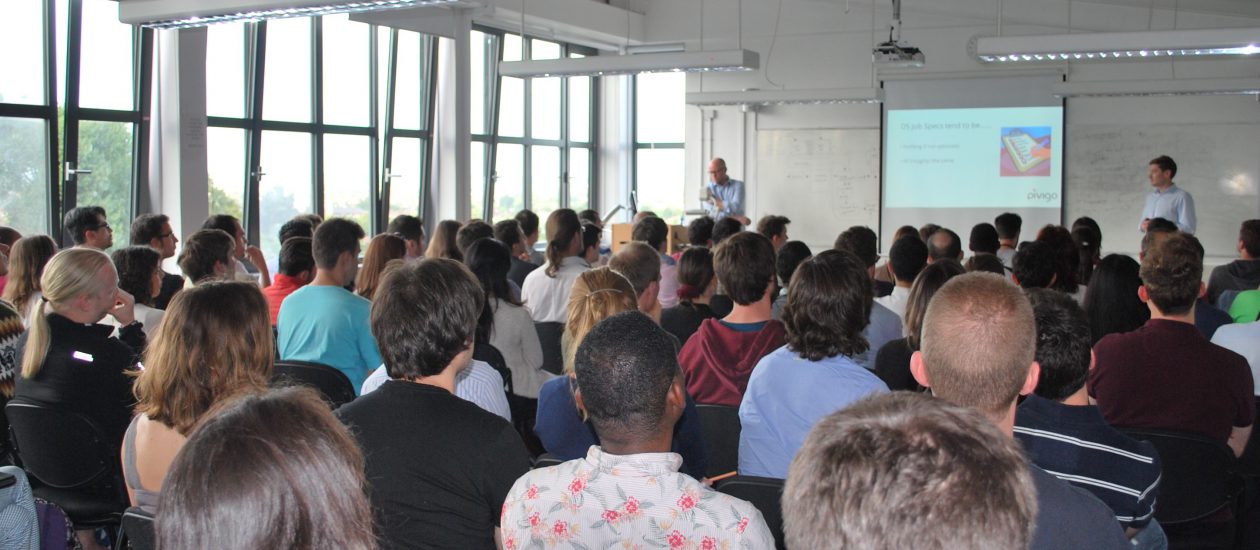By David Penhearow, Pivigo
I joined Pivigo two months ago to help deliver careers advice to our fellows, alumni and the wider data science community. A successful S2DS London has recently come to a close and the last event we organised in Harrow was the jobs fair. A chance for our fellows to mingle with data scientists and business leaders from companies of all industries and sizes to help them decide what is right for their next career adventure into the world of data science, and also to help our partnering companies to grow and achieve their objectives. But the big question in the run up to fair for our Fellows was: “how do I come up with the best CV for my dream data science role?” Well, here are a few tips that I hope will help.
So what? This is the question you need to ask about everything on your CV. Your CV may be viewed by anyone in a company from HR and recruiters to Data Scientists, CTO’s, CEOs and anyone else you can think of who may have a stake in hiring you. They will all have varying degrees of technical knowledge and experience in data science. The “so what” question requires you to really pin down the value you are trying to get across in the statement or detail you have put down. You should also bear in mind the assumptions different stakeholders may make about what you have written.
The Personal Statement. CV’s can sometimes by quite dry and companies, when reviewing dozens of CVs, can get the dreaded CV blindness. The statement is a chance to show how passionate you are about data science and your enthusiasm for putting your skills towards changing the world for a better place in your preferred industry. But be careful not to waffle! Ensure that it is short and punchy.
Education. Many of you have PhDs and most have some type of degree. This is great!! All of the work on your MScs and PhDs is very relevant to techniques and ways of thinking in Data Science. Your research should be included in your experience, however, we want to grab people’s attention with this so a brief summary of level, institute and topic goes under the personal statement.
Work Experience. This is a chance to show how you’ve channelled your passion and enthusiasm, and applied your intelligence to a real world business scenario to achieve something of value. Try to focus on what you achieved rather than the tasks you undertook and ensure that is written in a way that a business person will understand. You should also aim to make your achievements measurable. Academic experiences should be written thinking about what you’ve done that is transferable into data science and the world of commerce. I appreciate that you would have worked hard on them, but publications will be of little relevance to most employers! This should be the largest section on your CV. Remain concise and objective with your bullet points.
Technical Skills. It’s important to demonstrate your technical ability within work experiences but also list your technical skills towards the end of your CV stating your competence as either basic, intermediate or expert. DO ensure you state a level you are confident to demonstrate as it is likely that you will be tested! This applies for languages also.
Interest and hobbies. This is a chance for you to impart some of your personality into your CV. At the end of the day, no matter how technically brilliant you are, people will work with people they like and who are a good team fit. Do try to put in a bit more flare than just listing hobbies but remember not to waffle. Everyone puts travel for this, so perhaps say where you travelled last or your next destination, for example.
I hope this helps. Please feel free to get in touch for more personal advice.
